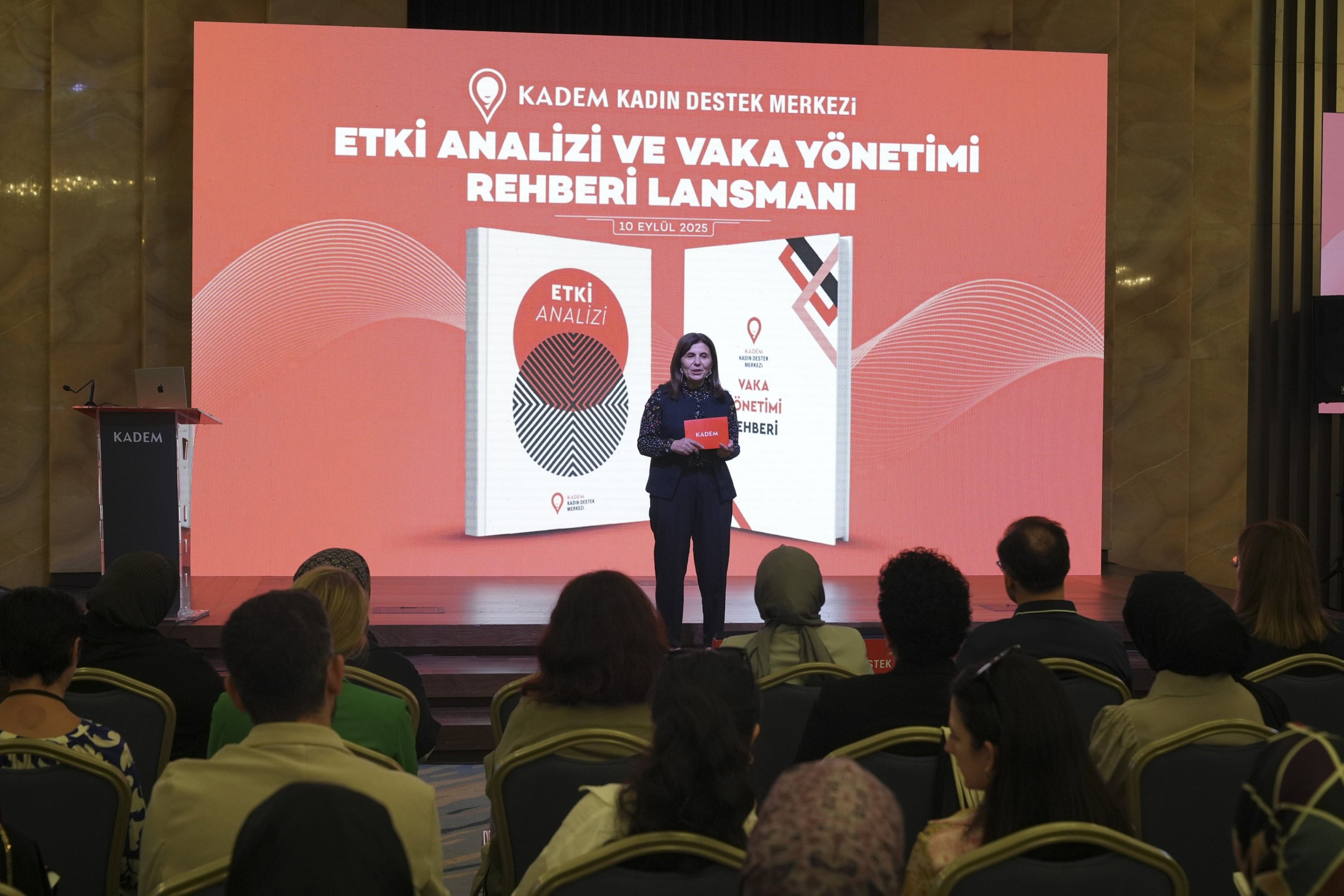Physical Address
Indirizzo: Via Mario Greco 60, Buttigliera Alta, 10090, Torino, Italy
Physical Address
Indirizzo: Via Mario Greco 60, Buttigliera Alta, 10090, Torino, Italy

The Women and Democracy Association (KADEM) unveiled its Impact Analysis Report and Case Management Guide on Tuesday in Istanbul, outlining the social contributions of Women’s Support Centers (KDM) across several cities.
KADEM has operated KDM centers since 2022. Their mission is to provide women with psychological, social, legal and vocational support, contribute to their empowerment and offer a safe space, especially during difficult times.
Speaking at the launch event in Istanbul, KADEM Chairperson Canan Sarı emphasized the centers’ vital role, describing them as safe havens that empower women and strengthen social solidarity. “Women’s dignity is society’s dignity,” she said. “Empowering women, who make up half of society, is essential for social justice and progress. That’s why we have supported women across education, employment, family life and social participation – and we continue to do so.” Sarı highlighted that KADEM has been working for 12 years to ensure women can live with dignity, participate fully in social life and combat violence, discrimination and injustice.
Sarı explained that KDMs provide holistic support, addressing not only physical needs but also psychological, economic and social challenges. “These centers have become doors of opportunity for women facing violence, economic hardship, interrupted education, or barriers to employment,” she said.
Since opening the first center in Edirnekapı, Istanbul, in 2022, KADEM has expanded quickly to earthquake-affected provinces in southern Türkiye, including Hatay, Kahramanmaraş, Adıyaman and Malatya. “Most importantly, we walk alongside women, helping them rebuild their lives according to their own values,” she added.
In addition to Sarı’s remarks, KADEM General Director Zeynep Demir presented the new Impact Analysis Report and Case Management Guide, emphasizing that the principles of “trust, dignity and justice” are not just words but the foundation guiding KADEM’s work every day. “When we look at these two studies together, it becomes clear that our vision isn’t just theoretical; it has a tangible impact on women’s lives,” she said. Demir added that empowering women is not only a personal victory but a catalyst for broader social change.

Speaking to Daily Sabah, Demir described the new model at KDM centers that combines a social-ecological intervention approach with Acceptance and Commitment Therapy (ACT), creating a method tailored for Türkiye. Unlike long-term therapy programs, this model delivers immediate, practical results, helping women directly address challenges and build confidence.
The approach is applied in five centers across the country, with its effectiveness continuously measured using scientific evaluation techniques. “We can see clearly which areas are working and where improvements are needed,” she said, stressing that the program supports women from all walks of life – from university professors to housewives and both Turkish citizens and Syrian refugees – without underestimating any challenge.
The Impact Analysis Report, based on surveys of 463 women, found that participants benefited most from psychological and legal support. Vocational training and educational programs also helped many women find new employment opportunities. Overall, women reported medium-high satisfaction with the services, noting that the centers had made tangible changes in their lives. In earthquake-affected areas, psychological support proved especially crucial, helping women strengthen family relationships, improve problem-solving skills and manage parenting challenges.
The Case Management Guide complements the report by providing a roadmap for supporting women more holistically. It goes beyond addressing immediate issues to offer protective and empowering services that help women plan for a more stable future. Tools such as psychological flexibility assessments, functional behavior analysis and individual empowerment plans enable women to set and achieve long-term life goals.
The guide integrates modern social work methods, emphasizing strength-based practices, trauma-informed care, cultural sensitivity and family systems theory. Its four-stage process includes introduction and initial assessment, psychological flexibility assessment, planning and implementation and monitoring and evaluation.
KADEM aims to expand the KDM model to more cities, standardize practices with the Case Management Guide and ensure that women’s empowerment journeys are sustainable. The association views today’s work as the foundation for more comprehensive steps that will meaningfully impact women’s lives.